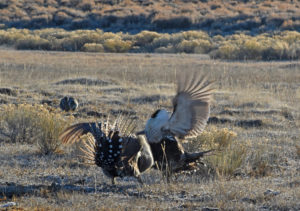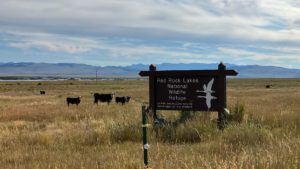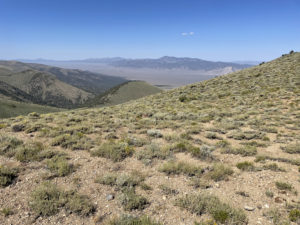For Immediate Release
November 9, 2020
Contact:
Erik Molvar, Western Watersheds Project, 307-399-7910, emolvar@westernwatersheds.org
John Mellgren, Western Environmental Law Center, 541-359-0990, mellgren@westernlaw.org
Kelly Nokes, Western Environmental Law Center, 575-613-8051, nokes@westernlaw.org
PORTLAND, Ore – Last Friday, a coalition of Western wolf advocates filed a notice of intent to sue with the U.S. Fish and Wildlife Service, launching a challenge of the agency’s decision to prematurely strip wolves of federal protections in the contiguous 48 states, in violation of the Endangered Species Act. This notice starts a 60-day clock, after which the groups will file a lawsuit in federal court.
“The nationwide de-listing of wolves is designed to serve the extinction agenda of the livestock lobby and the most scientifically ignorant fringe of the sportsmen’s lobby,” said Erik Molvar, Executive Director of Western Watersheds Project. “We are committed to restoring the West to ecological health, which can’t be done without restoring key native species like the gray wolf.”
The most recent data from the U.S. Fish and Wildlife Service and its state partners show an estimated 4,400 wolves inhabit the western Great Lakes states, but only 108 wolves in Washington state, 158 in Oregon, and a scant 15 in California. Nevada, Utah, and Colorado have had a few wolf sightings over the past three years, but wolves remain functionally extirpated in these states. These numbers lay the groundwork for a legal challenge planned by a coalition of Western conservation groups.
“Given that gray wolves in the lower 48 states occupy a fraction of their historical and currently available habitat, the Fish and Wildlife Service determining they are successfully recovered does not pass the straight-face test,” said John Mellgren, an attorney with the Western Environmental Law Center. “While the Trump administration may believe it can disregard science to promote political decisions, the law does not support such a stance. We look forward to having a court hear our science-based arguments for why wolves are not recovered throughout the contiguous U.S. and need Endangered Species Act protections to fully recover.”
In delisting wolves, the Service ignores the science showing they are not recovered in the West. The Service concluded that because in its belief there are sufficient wolves in the Great Lakes states, it does not matter that wolves in the West are not yet recovered. The ESA demands more, including restoring the species in the ample suitable habitats afforded by the wild public lands throughout the West. Indeed, wolves are listed as endangered under state laws in Washington and California, and wolves only occupy a small portion of available, suitable habitat in Oregon. Likewise, wolves also remain absent across vast swaths of their historical, wild, public lands habitat in the West, including in Colorado and the southern Rockies.
“Wolves still need the protections of the Endangered Species Act across the vast majority of their native range, where populations are either just establishing themselves or completely absent,” said Molvar. “It is absurd to de-list wolves in states like California, Colorado, Utah, and Nevada where self-sustaining populations don’t even exist yet.”
The conservation groups have long been active on wolf recovery issues in the American West, including working with western states to develop science-based wolf management plans, mounting cases to rein in rogue federal government wolf-killing programs, promoting recovery efforts in the Southwest for critically imperiled Mexican gray wolves, and furthering non-lethal methods to prevent wolf-livestock conflicts before they occur.
“Wolves are a keystone species whose presence on landscapes regulates animal populations and improves ecosystem health – something the Service has acknowledged for at least 44 years,” said Kelly Nokes, an attorney at the Western Environmental Law Center. “Allowing people to kill wolves in Idaho, Wyoming, and Montana has already stunted recovery in those states. Applying this same death sentence to wolves throughout the contiguous U.S., would nationalize these negative effects, with potentially catastrophic ripple effects on ecosystems wherever wolves are found today.”
The best available science says gray wolves are not recovered. The coalition launching the legal challenge includes Western Watersheds Project, WildEarth Guardians, Cascadia Wildlands, Klamath-Siskiyou Wildlands Center, Environmental Protection Information Center (EPIC), The Lands Council, Wildlands Network, and Klamath Forest Alliance.
###






